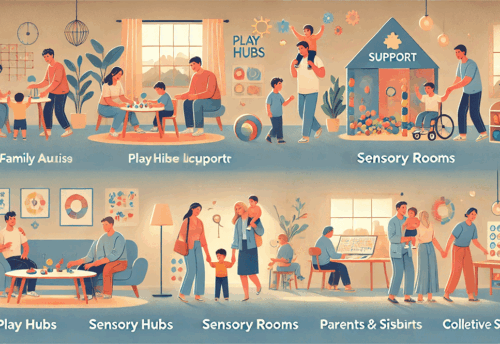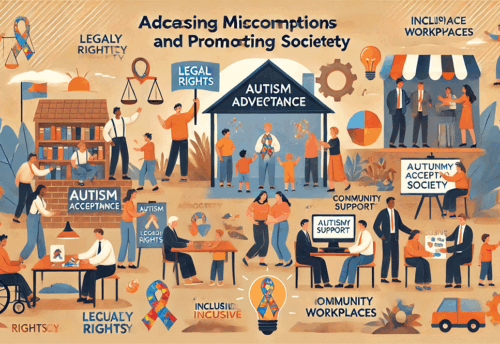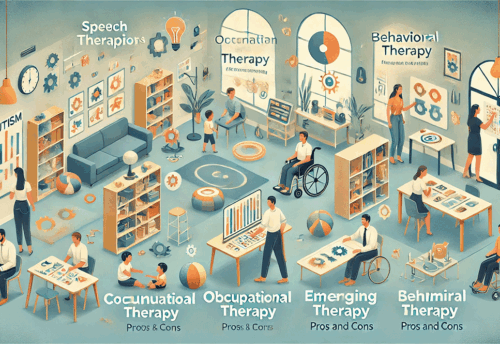
Autism in Different Life Stage
Autism in Different Life Stages
Autism Spectrum Disorder (ASD) is a lifelong condition that influences each stage of life uniquely. Understanding how autism presents across various life stages can support individuals in reaching their full potential, whether they are navigating childhood, adolescence, adulthood, or aging.
Autism in Childhood
In childhood, autism typically presents through differences in social communication, play, and sensory processing. Early intervention and support can have a significant impact.
- Social Development: Many children with autism find it challenging to interpret social cues and may prefer structured play or solitary activities. Therapy and inclusive education environments can help children build social skills and confidence.
- Sensory Experiences: Children may be particularly sensitive to stimuli like loud sounds or bright lights. Creating sensory-friendly spaces, whether at home or school, helps in providing comfort and support for sensory needs.
Autism in Adolescence
Adolescence brings its own set of challenges and opportunities as individuals with autism work toward greater independence and social connections.
- Social Relationships and Identity: Teens with autism may struggle with navigating social relationships, peer pressure, and changes associated with adolescence. Schools and support programs focusing on social skills and self-advocacy help teens explore their identities.
- Academic and Career Planning: Adolescents with autism benefit from career-focused programs and counseling to explore strengths and interests, which can set the stage for future employment.
Autism in Adulthood
Adulthood involves transitions to further education, employment, and, in some cases, independent living. Individuals with autism face both challenges and opportunities in this phase.
- Employment: Adults with autism may excel in specialized jobs that align with their strengths. Inclusive employers and job training programs can create supportive work environments.
- Independent Living: Some adults with autism live independently, while others may need support with daily activities. Assisted living programs or community support services can provide tailored assistance.
Autism in Aging Adults
Aging adults with autism are an emerging focus in autism care, as longer lifespans highlight the need for specialized support.
- Health and Well-being: Aging adults with autism may experience sensory sensitivities and health challenges that require adaptive healthcare approaches.
- Social Support: Many older adults with autism benefit from programs that offer community engagement, helping reduce isolation and supporting mental well-being.
Transitioning to Adulthood
The transition to adulthood is a critical phase for individuals with autism. Educational programs, employment training, and independent living skills can empower them to lead fulfilling lives. Community support and resources play a vital role in ensuring successful transitions for those needing additional assistance.
By understanding the evolving needs of individuals with autism across life stages, families, caregivers, and communities can provide meaningful support that enhances quality of life.





Leave a Reply